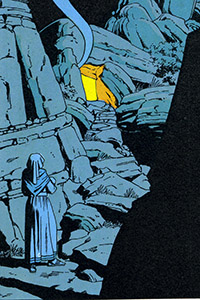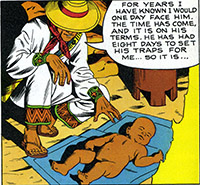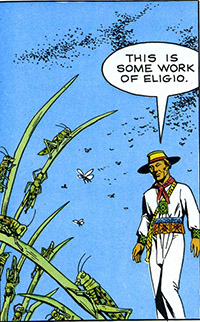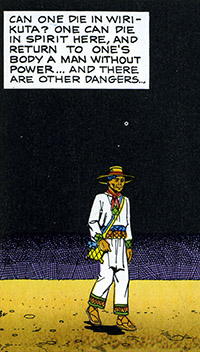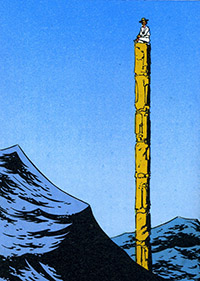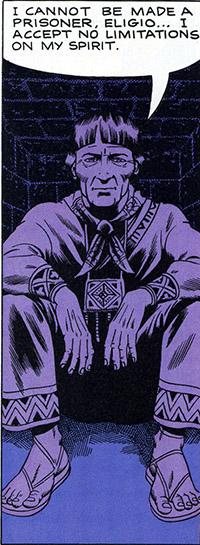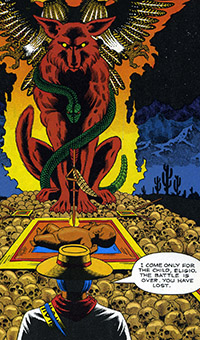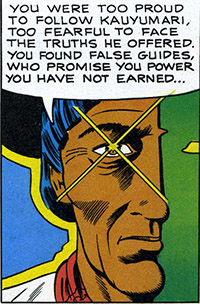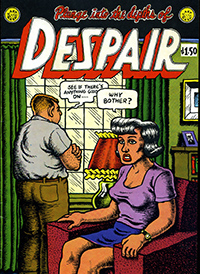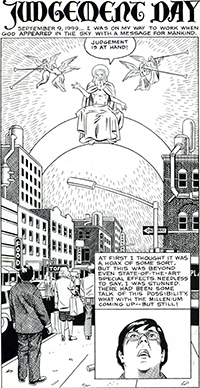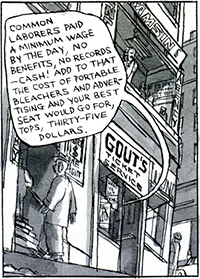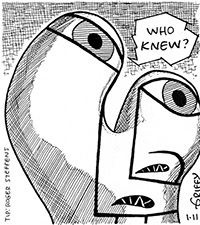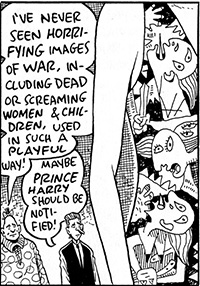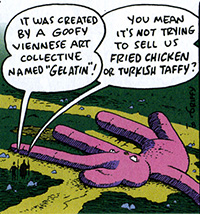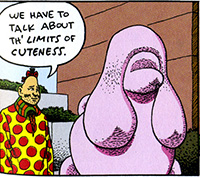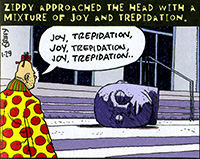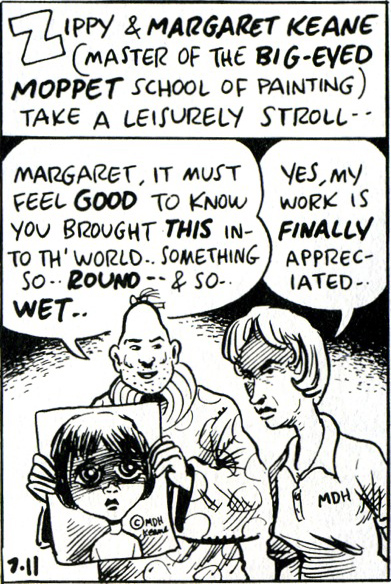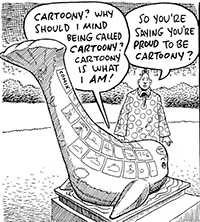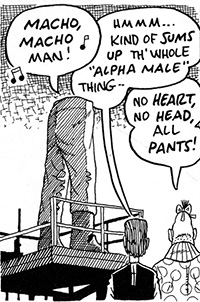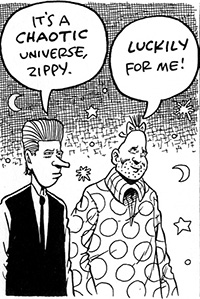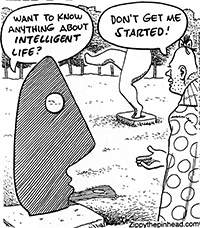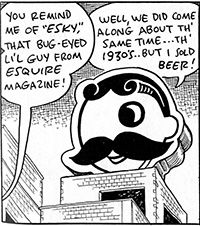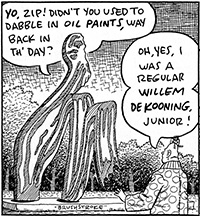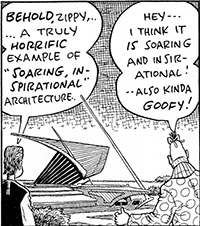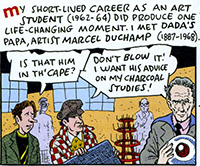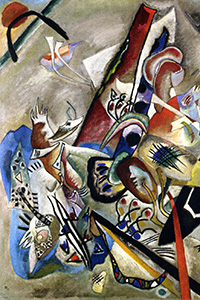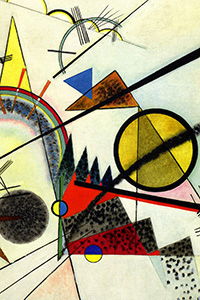OBJECTIVES By the end of this session you will be able to:
|
Tasks for this session
Before the start of our twelfth class meeting:
Read
Read pages 133-206 in Dreams from My Father by Barack Obama. This includes chapters 7-10.
Watch and Listen
Watch the movie Salt of the Earth (1954) (1h 42m) on YouTube. Thre is a second version available on YouTube and another copy on tubi.
Tasks
Activity One
Our class for the 11th session is in the classroom or on Zoom. We will meet to discuss your experiential learning projects and your work on your Grand Challenges paper.
Activity Two
Read pages 133-206 in Dreams from My Father.
Activity Three
Watch Salt of the Earth.
Activity Four
Work on your Grand Challenges Paper. Try to get a first draft written. You will want to finish a draft you can share with a classmate in the twelfth session, and it would not be good to try to write the draft in just one week.
There is a document available in Pages format or Microsoft Word format showing examples of papers. You should also consult my guide describing how to write a Grand Challenges paper (in Pages, PDF, and Word formats)
Activity Five
Begin planning what you want to present in a short (4-6 minutes is optimal) presentation on your work on the Grand Challenges paper.
Activity Six
For the fifth experiential learning assignment, continue to study human rights and the specific human rights issue where you will be doing advocacy. Write about the process in your journal.
Activity Seven
Continue working with the group you are active with, and write about the experience in your journal.
During the class meeting for sesion 11, this is what we could do:
1. Check in.
2. Discuss any macro practice that has been in the news.
3. Each person would talk about their understanding of how macro practice, and especially macro practice and community organizing, fit in with your overall understanding of how the world works.
4. We will share reports from the field, where you tell us about your experiences in the experiential learning assignments.
5. We will share your thinking on the Grand Challenges you are studying. What tasks are you considering, and what tactics and strategies are you imagining would be helpful? It is important to have limits and focus, and this disucssion would help people see how to write the paper, with a narrow focus.
For example, let us imagine you were thinking about “End Homelessness” as your grand challenge. You are going to consider the local (not state or national) level. You are going to consider addressing the problem and treating it as it exists now (not preventing it or curing it so the problem is gone). You will focus on the research issue, rather than the education or the practice component of the problem.
With that level of focus, you would want to gather information about the problem of homelessness as it exists in Sangamon County (or whatever county you live in or choose to study). There will be a local continuum of care, and they will be the source for most of your factual information about the scope of the problem and the service issues people are facing as they try to get homeless persons into shelter (emergency shelter, transitional housing, housing first, permanent supportive housing, and so forth). You will then try to identify a research question that someone could answer in a way that would be helpful to local service providers and others involved in helping those who are homeless.
For example, you might ask whether local hospitals are a key part of the solution, and see what techniques are most likely to bring hospitals into the mix. You might ask about fundraising to supply housing. You might ask about what methods bring more landlords into cooperation with housing workers so that persons can be placed in apartments and rental homes. You might ask about the financial viability of having someone take over city-owned vacant properties and fix them up and turn them into housing for persons who are homeless. You might ask about the successes of tiny houses placed on empty lots. You really would just pick any sort of problem that needs an answer, and then describe how you would try to get that question answered. Maybe you would ask the city or the local Continuum of Care to fund a study. Maybe you would have a university get a contract from the city or state or county government to find an answer to the question. Maybe you would have the major or city council assign the task to a economic development professional working for the city, and set up some sort of collaborative action research program involving students and faculty at the university and service-providers in the various agencies helping the homeless.
Whatever you decide to propose, you would describe something about how you would do the engagement (whom you would approach and how you would approach them to get the project up and running). You would discuss the assessment (how to figure out what resources are required to do the study, and how it could be done). You would discuss the intervention (how you imagine the research might be conducted). You would describe the evaluation of the research (would it be a report shared with all the stake-holders, a paper published in an academic journal, a series of presentations given to persons in city governments, local civic groups, and employees of the agencies working on the issues of housing and helping the homeless)?
Now is the time to narrow your focus, having finished background reading, and get to work on outlining your paper, and thinking about how you could present your work to the class. If we met in class, we would go through this process together in front of the class with a few students, so that everyone could see how to narrow down the scope of the paper and focus on what needs to be described and demonstrated in the paper and presentation.
6. We would talk about human rights, and their importance in social work. I would describe the Universal Declaration of Human Rights. We would discuss examples of human rights and reports on human rights.
Session Time Budget
3h 30m |
Canvas Discussion Board participation and Zoom meeting or classroom meeting. |
1h 42m |
Watch the film Salt of the Earth. |
2h |
pages 133-206 in Dreams from My Father by Barack Obama. This includes chapters 7-10. |
1h |
Continue your participation in a group or organization so that you can use this participation to inform your thinking with practical applications of what we are learning in this class. You probably should be writing about your experience in your journal by now. |
2h 15m |
Work on your Grand Challenges Paper, doing research and background work. |
33m |
Work out a brief presentation to the class about your Grand Challenges paper. Try to figure out what you want to say so that you can describe the problem, the thing that needs to be achieved, and the methods most likely to help achieve that thing. |
1h |
Work on your fifth experiential learning assignment, where you will be advocating for human rights. |
Discussion Board Questions (Activity One)
Go into Canvas, log in, and respond to the discussion questions for this session.
These are:
DQ 11-1: Check In
Check in for the eleventh week of the semester. Tell us what is going on. Share something you have done in the recent days or weeks that you feel good about.
DQ 11-2: Power in macro practice.
Power is conceptualized in a wide variety of ways in social work practice. Let's use (for this discussion point) the idea that "power" means the effectiveness of a tactic or strategy; in other words, the likelihood that an action will elicit a desired result.
Let us next consider two frameworks for understanding power.
First, the "capital" framework emerging from economics and modified and popularized by the French sociologists Pierre Bourdeiu and Jean-Claude Passeron, and then further advocated and popularized in the English-speaking world by Robert Putnam. The idea here is that just as capital investment in industrial production allows firms to make things (you invest in a factory, machinery, technology, machine tools, and those sorts of things, and as a result, you can make things), there are "investments" in people that allow them to accomplish more. There is also: 1) "human capital" in the sense of skills a person learns or knowledge a person gains (through education, apprenticeships, life experience, job training); and 2) social capital in the sense of relationships a person has that allow them to accomplish things (having a network of contacts who can give you information or help you get resources or join with you in collective action, with these contacts spread over diverse and sometimes distant social strata or geographic locations—bridging social capital, and also a network of contacts who trust you and will give you support and help and a feeling of belonging—bonding social capital); and 3) cultural capital in the sense of knowing behavioral expectations and social assumptions and preferred ways of communicating so that people will understand and trust you and respect you. According to this theory, we can increase our power or our organization's power by working on increasing human capital, social capital, and cultural capital.
Second, the mass mobilization strategy of power. This is the approach in which power is exerted by having a great majority of people supporting some outcome. In this framework, you want to work to change popular sentiments and campaign to raise awareness and support for your cause. Then, you want to build coalitions and alliances so that organized groups of people come to an agreement that they will join in pushing for and advocating the specific policy or change you want. You then also work to put political pressure on those in power, showing them that you have numbers of highly motivated and mobilized supporters, so they had better go along with you. You may also use direct action, mass demonstrations, or strikes to further demonstrate that you mean business and have sufficient support to threaten the power of those who are in charge, so they had better go along with your demands.
Which of these two frameworks seems most useful to you as you consider how to effect positive change in society? In what circumstances does a "capital" investment framework seem most appropriate, and when does a mobilization and mass movement strategy seem more appropriate? Can you give an example or a case to illustrate your position?
DQ 11-3: Reports from the field
In this course you have five individual experiential learning assignments, and an academic paper on macro practice strategies and tactics for achieving a particular aim. This is a question about the experiential learning assignments. Given the goals of this course, do you think the experiential learning assignments are a preferable sort of assignment, or would you prefer different assignments that asked you to respond to scenarios or dialogs, or respond to the reading, or regular weekly exercises or online quizzes?
Which of the experiential learning assignments was most useful to you in terms of helping you learn skills and adopt views that you guess will help you in social work practice? What was the best experience you had with the experiential learning assignments? Can you imagine any other experiential learning assignments that might work better than the ones we used in this class, and if so, what?
Keep in mind the goals of each experiential learning assignment as you consider the value of these sorts of assignments:
1) Finding common concerns among a mixed group including persons you didn't know well. Goals were to give you practice in setting up meetings with people you don't know very well; guiding conversations toward identifying common concerns; and having conversations about common concerns with persons you don't know well. Preferred outcome: you should feel more comfortable inviting persons you don't know well to gatherings in which you will get to know them better, and you should feel more comfortable guiding conversations toward particular directions, and you should feel an intuitive appreciation for how to allow a group to take conversation about common concerns where they want to go while at the same time using your influence in the group to help the group ask questions and address issues that will help clarify values, ideals, and perceptions of problems.
2) Having conversations with powerful persons you know and identifying more powerful persons you could potentially meet. Goals were to give you practice in having conversations with powerful persons in higher status than yourself about "getting involved with" and "supporting" efforts to improve a community or address a problem issue; helping you to see that almost everyone wants to do something to improve the community or contribute to making this world a better place; and giving you a sense that you can seek help from powerful persons when you are trying to work on some macro practice issue. Desired outcomes were: you would be less shy or intimidated about initiating conversations with persons in higher status positions than yourself; that you would get some ideas of what people look for when they make decisions about what to support with their time, influence, or money; and that you would gain skills in approaching influential persons to ask for their help (a skill you hopefully will be passing along to your clients or persons you are training for leadership in your communities).
3) Getting more involved in a cause-oriented organization or a service group. The goals were for you to enhance your experiences of connecting with others who are working on macro issues; see for yourself how even a busy student or social worker might make room for a few hours each month of contributing toward the success of a cause-oriented organization or service group; and finding out whether you might be attracted to some actual macro practice opportunities. Objectives were for you to become more likely to engage in macro practice work in your life; gain a more experience-based intuitive understanding of how cause-oriented organizations and service groups function; and actually do something as a student in this course that would benefit society or your community (service learning).
4) Working out how you might collaborate and join in coalition or support with a political "adversary" on some issue. The goals were for you to: learn about how most people, even people with whom you vehemently disagree on many issues, have some good qualities or charitable interests where you and they share goals and values; gain experience on doing research on public figures to learn more details about their lives and interests; and help you experience the idea from macro practice about "no permanent allies and no permanent enemies; we work on issues and specific goals, and whoever supports us on any particular issue or goal is our ally on that issue; and whoever opposes us is our adversary on that issue." The objectives were for you to gain empathic understanding about someone whom you might easily despise or hold in contempt, so that you will become a social worker who can approach "adversaries" without feeling hatred or developing grudges against them (reduce your partisan bias); become comfortable with the process of doing "background research" about people with whom you must interact; and develop habits of thought about how to cultivate collaborative relationships with anyone (very important in macro practice).
5) Human Rights Advocacy project. Goal was for you to find an opportunity to advocate for human rights, and then actually participate in some advocacy for human rights. Objective was for you to gain an appreciation of human rights as a core value of the social work profession, recognize how we can advocate for the human rights of others, and gain experience in the actual work of advocating for human rights (which is an ethical duty all social workers have).
DQ 11-4: Process and Outcome
Some experts and practitioners take an approach to macro practice in which they stress the outcomes, and they tend to think of outcomes in terms of policy goals: money raised; bills passed; membership increased; services improved; problems solved; goals met; favored candidates elected; agency goals reached; counts of clients served; demographic indicators showing decreases in poverty, crime, homelessness, hunger, and so forth. These people care most about success and efficiency. There is another approach to macro practice which lays more stress on process, values, ethics, and narrative. People in this camp may be more concerned about the long-term sustainability of their group, and they might be willing to sacrifice efficiency and short-term policy achievements in order to build better processes and relationships among the group of people working toward those achievements. For such people, the process and method and experience of macro practice work is just as important as—and maybe more important than—the more measureable goals.
These two approaches are not mutually exclusive. Both are important. Macro practitioners are concerned about both aspects of their work. But, sometimes there are conflicts between the two. A person might sacrifice desired outcomes in order to follow ideal processes. A group might decide that something that is ineffective or controversial ought to be done anyway because the group enjoys doing it and wants to do it regardless of the outcome. Sometimes people want to do something to honor their identity, or the narrative that they admire about their group or community, even if it serves no function in terms of getting something the group wants. On the other hand, another person might work around the existing processes in order to achieve some goal, or a person might just do things on their own to be more efficient, even if this slows the growth of the organization. Value statements can help a group decide what their limits are in terms of what they will do to achieve their goals and objectives, but sometimes values can come in conflict.
What is your personal, intuitive preference? Are you more interested in efficient achievement of goals (with due respect for the secondary aspects of having a good process and improving the organization as its own entity), or are you more interesting in developing a healthy and sustainable group in which people feel that their needs are satisfied and they can enjoy working together (with due respect for the secondary and more long-term goals that can be measured in terms of policy or service achievements)? Why do you think you have your preferences?
DQ 11-5: Offer a scenario
One of the best ways to work on your macro practice skills is to imagine various situations in which you would need to use macro practice skills, and think about what you would do. For this point, come up with a scenario, and share it with the class. For a scenario, you generally tell people to imagine they are in such-and-such a role. Then, you give them some background, and describe the situation they face. You could simply ask, "What would you do? Why?" Or, you might give people options for what they should do or say. You can think of a scenario involving a group and some large event or problem, or create a scenario around a situation between two persons. For the best scenarios, you will be thinking about some point or principle or rule that we should know in macro-practice, and you will be trying to help those who consider your scenario learn that point, principle, or rule.
I look forward to the scenarios you share here, and also the answers your classmates will give for how they would deal with the scenario you have created for them to imagine..
DQ 11-6: I’m Not Political
In our culture, we often hear the phrase, “I'm not political”. In fact, I hear it among social work students sometimes.
Some people don't like this term. Someone on Twitter (“khaleesi@Dumphim2017”) recently tweeted:
In America you don't say "I lack empathy and basic critical thinking skills" you say "I'm just not political" which means, "I am so privileged that politics has never been personal for me so I'm not engaged and I think it makes me smarter than people who are." Isn't that amazing?
And there are many interesting editorials on the Internet decrying this phrase, "I'm not political" such as Jon Greenberg's essay from December of 2016 at Everyday Feminism, and Sarah Bernstein's even earlier (February 2016) satirical essay at Reductress about "I'm not political" and its implications.
On the other hand, many people are worried about the polarization in this country, and some people look at the state of politics and the behavior of politicians and associate all sorts of dishonesty, cognitive bias, group-think conformity, shrill overreactions, knee-jerk assumptions, and high-conflict orientations with politics, and they want to stay far from all of that.
Please take a position here: are you a person who would urge everyone to be political, and use some of their effort to engage in the public sphere and politics to help us get better policies and an improved society; or are you a person who is skeptical about politics, who feels good about people finding other paths toward making the world a better place, doing something outside politics? Or, do you take a middle-position, trying to say that the criticisms of “I'm-not-political” are persuasive, but so are the justifications for the desires of some people to escape from and reject politics?
Share your position on this issue and give a point or two (or more) to explain why you take the position that you do.
DQ 11-7: Talk about what you have done and learn from it
Obama describes a convention of the Calumet Community Religious Conference (CCRC), and says (on page 152), “I, too, found myself feeling cheered, recognizing in myself the same vision driving Marty, his confidence in the populist impulse and working-class solidarity; his faith that if you could just clear away the politicians and media and bureaucrats and give everybody a seat at the table, then ordinary people could find common ground.”
In essence, this is one of the fundamental frameworks to understand Obama’s organizing experience. First, there is a belief that people could find common ground and solidarity and get things done. Second, there is a perception that politicians and media and bureaucrats mislead or distract the people, to prevent their working out solutions that would benefit the people more than the politicians, media, and bureaucrats. Look at each encounter, character, and event in the narratives about his community organizing work, and see if you can find this idea that people would naturally be able to work together if they were organized, but the mentality and emotions and behaviors they have embraced (which are encouraged by politicians, media, and some community leaders or bureaucrats) prevent them from reaching their potential.
Take any anecdote from chapters 7-10 (pages 133-206) and explain how it illustrates the ideal or vision that people could work together, or how it illustrates the criticism that leaders stand in the way of solidarity and discovery of the unifying common ground and purpose.
Consider whether you would use this framework, and how it would influence your tactics and strategies when dealing with leaders/politicians/media/bureaucrats if you did. Or, if you reject this framework, or want to point out its limitations, explain why.
DQ 11-8: Salt of the Earth
You watched Salt of the Earth, a 1953 film about zinc miners in New Mexico. The film portrays the struggle of workers against capitalists; the struggle against racism (specifically, discrimination against Hispanic New Mexican miners), and the feminist struggle for equality of women. It is filmed in the cinéma vérité style (Italian Neorealism).
Audiences and critics sometimes complain about how one-sided and didactic the films is (it might seem “preachy” to you). Most of the performers are not professionals, and this shows in their acting. The movie is also pretty simple and lacks subtlety. These are all obvious flaws, if one considers them flaws. But, how does the movie work? What feelings did the scenes and dialog elicit in you? Can you think of any other movie you have seen that criticizes “the system” and sympathetically presents the point-of-view of common working people who are struggling to promote social justice? If we were making a movie like Salt of the Earth in the 2020s, what story might we tell?
DQ 11-9: Obama and organizing
Around the time that Barack Obama decided he wanted to become a community organizer, he checked out a few things. He worked as a research assistant in a consulting house that worked for multinational companies. He was offered (and turned down) a position in a prominent civil rights organization where he would have organized conferences on drugs, unemployment, and housing. He worked for an environmental group for a few months, and he went to hear Kwame Touré (formerly known as Stokely Carmichael) give a talk (Obama was clearly repelled by that event and the unproductive radicalism he witnessed). He finally decided to go to Chicago to work with Marty Kaufman.
Consider that initial meeting with Kaufman (described on pages 140-142). You may recognize some of the things Kaufman told Obama at that intial meeting as things we learned about so far this semester. For example, the usefulness of having anger to motivate you, the need to work with powerful institutions like churches, the idea that people (churches, in this case) must see how they can benefit through their involvement, the need to engage in political practice (working on campaigns), the importance of having diverse people in your core group, and the lack of interest in assigning blame and pointing out fault.
Imagine you are Marty Kaufman, and you are trying to recruit Barack Obama back in the early 1980s. What would you say? What did Marty say that was most likely effective in recruiting Obama? What are some of Obama’s characteristics (aside from his racial background) that made him well-suited to the work of community organizing?
Interesting Stuff To Explore (optional stuff)
I strongly recommend reading the Democracy Report 2020 (Autocratization Surges — Resistance Grows [pdf]) from the Swedish Varieties of Democracy group.
Ethnic antagonism erodes Republicans’ commitment to democracy in Proceedings of the National Academy of Sciences of the United States of America by Larry Bartels (September 15, 2020) showing that ethnic antagonism (fears about Blacks, Hispanics, Asians, etc. getting too numerous and too powerful) is the strongest predictor of the anti-democratic impulses in the Republican Party.
Rural Organizing dot Org is a progressive rural organizing effort.
You could do a review of the main points in community organizing by reviewing materials at CallHub, a company that sells services to politicians and activists. They specialize in digital activities to mobilize supporters for causes or candidates.
When Obama was organizing in Chicago, Harold Washington was mayor. Learn more about that time with these resources:
- Back to the Movement is the 14th episode of the Eyes on the Prize documentary series, and covers the story of Chicago politics when Harold Washington became mayor. You will need to log-on with your UIS ID and password to gain access to this. (57 minutes) (scrub ahead to start watching at around 28:30, and from there it focuses on Chicago and Harold Washington until about 49:30)
- Roger Biles discusses the political career of Harold Washington on C-Span (51 minutes).
- Mayor Harold Washington - Chicago's 41st Mayor. (58 minutes) on YouTube.
- Chicago Tribute: Harold Washington, 25 Years Later (7 minutes).
- Harold Washington Remembered (9 minutes)
Salt of the Earth
Salt of the Earth was a film made with persons from Hollywood who had been blacklisted, and actual miners and their families who had been involved in the strike (and Rosaura Revueltas, a Mexican film star). Learn more about the making of the film and its meaning with these sources:
-
Salt of the Earth: The Movie Hollywood Could Not Stop at HistoryNet.
-
Salt of the Earth: Made of labour, by labour, for labour. by Sukhdev Sandhu. March 10, 2014. The Guardian.
-
Salt of the Earth (1954): Social Realist Film from Blacklisted Artists, Michael Wilson, Paul Jarrico, and Herbert Biberman. by Emanuel Levy. November 26, 2006. E L Cinema 24/7.
A Look Back at the Hollywood Blacklist. July 8, 2018. At Brandeis NOW.
-
The Hollywood Ten: The Men Who Refused to Name Names. by David L. Dunbar. November 16, 2015. The Hollywood Reporter. This one mentions Herbert Biberman, the director of Salt of the Earth.
Come to the next class ready.
Our 12th class is mainly devoted to the Grand Challenges Paper, but we will also discuss the film Salt of the Earth and Obama’s experiences as a community organizer.
We will come together for the thirteenth class session, which is usually the Tuesday before the week of Thanksgiving, and thus the last time we might meet in the class; the Tuesday before Thanksgiving (usually the 14th meeting) is only on disucssion boards, and the Tuesday after Thanksgiving is our 15th and final meeting of the semester, and we have it on Zoom.

